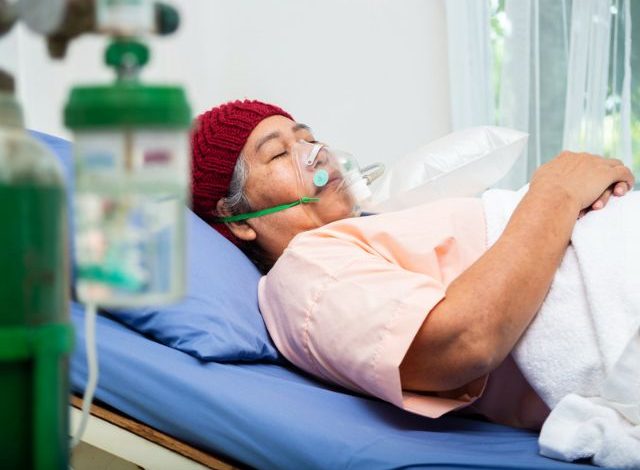
What is Chemotherapy?
Chemotherapy is a common method to treat cancer. It uses potent drugs to kill cancer cells in the whole body. Chemotherapy drugs recognize the fats dividing cells in the body and kill them by damaging their functional mechanisms.
Chemotherapy can help fight cancer, but it has some negative side effects also. Everyone has a unique reaction. The sort of chemotherapy medications you utilize might have an impact on your experience.
As the cost of chemotherapy is affordable and the success rate is also high, chemotherapy is one of the most commonly used methods to treat different types of cancers at early stages.
Chemotherapy is one of the most powerful cancer therapies available, but it can also produce tiredness, nausea, and other adverse effects. This article is on some tips to manage these side effects.
Why does chemotherapy cause side effects?
Cancer cells develop quickly, and chemotherapy medications destroy rapidly growing cells. As these drugs circulate throughout the body through the bloodstream, they can also harm regular, healthy, fast-growing cells such as hair follicles.
Damage to healthy cells has unintended and harmful consequences. Although side effects are not usually as severe as you may imagine, it is fair to be concerned about this aspect of cancer therapy.
Chemo is most likely to harm the following normal cells:
- Bone marrow consists of blood-forming cells
- Follicles of hair
- Mouth, digestive tract, and reproductive system cells
These unintentional effects lead to some of the common side effects of chemotherapy. These side effects may vary in different individuals, and they can be managed if proper care is being taken.
What are the common side effects of chemotherapy?
Most individuals are concerned about whether they will experience chemo side effects and, if so, what they will be like. The following are some of the most prevalent adverse effects of chemotherapy:
- Fatigue
- Loss of hair
- Bruising and bleeding are common.
- Infection
- Anemia (low red blood cell counts)
- Vomiting and nausea
- Changes in appetite
- Constipation
- Diarrhea
- Sores in the mouth, tongue, and throat, as well as swallowing discomfort
- Numbness, tingling, and pain are symptoms of peripheral neuropathy or other nerve disorders.
- Changes in skin and nails, such as dry skin and color change
- Urine and bladder abnormalities, as well as kidney issues
- Weight fluctuations
Do keep in mind that it’s not necessary to have the same side effects as listed above. The side effects can be similar or different completely.
Some people do not have any side effects at all while some may have many side effects. All of this depends on the type and stage of cancer which will eventually vary the dose of chemotherapy and hence cause different side effects in different individuals.
How do manage the side effects of chemotherapy?
Some of the tips from cancer doctors to manage these side effects are listed below:
1. Nausea or vomiting
Changing your eating habits can help relieve nausea and vomiting to some extent:
- Eat five or six small meals instead of three regular ones.
- When eating and drinking, slow the process.
- Instead of drinking as you eat, drink an hour before or after. Apple juice, tea, and flat ginger ale may be beneficial.
- Avoid meals with strong odors. Strong odors can occasionally cause nausea or vomiting.
- Avoid sweets, as well as fried and fatty foods, which may make you feel unease.
2. Hair loss
Some chemotherapy medications cause hair follicle cells to die, causing your hair to thin or, in some circumstances, fall out altogether.
If your chemo plan contains medications that may cause hair loss, discuss with your oncologist whether wearing a cooling cap during treatment may help reduce your risk.
The hypothesis behind scalp hypothermia is that chilling tightens, or constricts, blood vessels in the scalp, decreasing the quantity of chemo medication that reaches the cells of the hair follicles.
3. Diarrhea
Diarrhea is prevalent following cancer therapy and might last for months afterward. Inform your nurse or doctor if you experience diarrhea more than two times a day. Some of the common advice the doctor will tell you are:
- Try to drink at least 8-ounce glasses of water per day. Choose caffeine-free drinks such as pulp-less fruit juices, broths, or flat sodas.
- Avoid drinking liquids with your meals, drink them between them, before or after.
- Ask the doctor to prescribe anti-diarrheal medications if required.
4. Fatigue
You may have fatigue, but there are methods to deal with it.
- During the day, rest or take short naps.
- Exercise. A quick stroll may help you feel more energized.
- When you need assistance, ask relatives or friends for assistance.
- Concentrate your efforts on the most vital things.
Consult your doctor if you can’t seem to get rid of the sleepy sensation. Chemotherapy can cause anemia and low red blood cell counts in some people. Your doctor can do blood tests and treat you if required.
5. Brain Fog
Some patients suffer from short-term mental fog or chemo brain following therapy. Try these coping strategies:
- A daily planner or journal may help you organize to remember small details such as – appointments, names, addresses, phone numbers, and to-do lists.
- Keep your mind engaged. You may take a class, go to a lecture, or perform word puzzles.
- Eat healthily and get adequate exercise and sleep.
- Concentrate on one task at a time.
aims to kill or destroy cancerous cells in the body with the help of drugs or medications. It is one of the most common techniques used to treat any type of cancer.
Chemotherapy is often used to cure cancer completely, reduce the size of tumor before surgery or kill any cancerous cells left behind after surgery.
Chemotherapy is frequently used in combination with radiation therapy also. The cost of chemotherapy is very affordable, which makes it one of the most common methods used to treat cancer.
While taking chemotherapy or even before it, a patient needs to adjust their diet and nutrition intake. This diet change helps to relieve many symptoms and it also helps to keep the body at ease after taking potent drugs.
The main objective of these nutritional changes in a patient’s daily life is to make the journey of cancer treatment easier and more comfortable.
The body of a patient during chemotherapy needs light food and non-acidic juices, as it becomes more difficult to digest heavy or oily food.
This article mainly revolves around the idea of food that goes along with chemotherapy. The food that a patient requires before, during and after chemotherapy are listed below. Continue reading to know more.
What should a patient eat before undergoing chemotherapy?
On your chemotherapy day, it is suggested that you eat light. Eating small quantities of food slowly and every several hours seemed to be the most effective way to intake light food. On days before chemotherapy sessions, avoid skipping meals and consuming fatty, oily, or spicy foods etc.
Light, bland meals appear to be the most effective. Examples of options include:
Yogurt, plain or fruity
- Cottage cheese and fresh fruit
- Toast with a poached egg
- Toasted bagel with a dab of peanut butter
- Cereal with milk (if lactose intolerant, consider Soy milk).
- Soup with chicken rice and saltine crackers
What should a patient eat during chemotherapy?
Take a modest, bland food with you throughout treatment. Snack on low acid juices (apple, grape, and fruit nectars), liquid yogurts, fruits such as bananas, and crackers in addition to the items listed above.
Fill a water bottle with your favorite beverage and bring it with you (avoid acidic foods which may be irritating to your digestive tract).
Juices and vitamins such as Ensure or Boost are often provided where you get chemotherapy; nevertheless, inquire ahead of time whether these and any other foods are accessible.
If you don’t feel like eating during the infusion, that’s fine; nevertheless, remember that consuming tiny amounts of bland food and beverages may help you feel better. As tolerated, drink little quantities every 12 hours.
What should a patient eat after chemotherapy?
After chemotherapy it becomes the duty of the patient to take care of themselves. The diet is the most important thing to change while taking chemotherapy.
Some is one the most common things about your diet that you can change after taking chemotherapy are listed below:
- During the day, eat small meals and snacks which are made up of less fat.
- Consume lower-fat, blender meals!
- Colder or chilly meals emit less odor and scent, which is especially beneficial if you are feeling nauseated. Hot food items may have a great odor, which might generate an aversion to specific foods.
- Drink enough water to avoid dehydration and to flush out some of the chemotherapy metabolites from the body. Try taking other beverages as well as water
- Grape and apple juice
- Nectars from fruits
- Broth with little salt
- Soups that are clear
- Sherbert and Gatorade Popsicles
- Gelatin
- Herbal teas like ginger and mint
- Poor quality black teas
- Ask the doctor to prescribe anti-nausea pills if needed
All these food items can be taken, and changes can be made according to the patient’s health and preferences. Consult your doctor before taking any supplements or vitamin pills as they may hinder the chemotherapy and can lead to severe health problems.
Browse also – Understanding Male Breast Cancer





